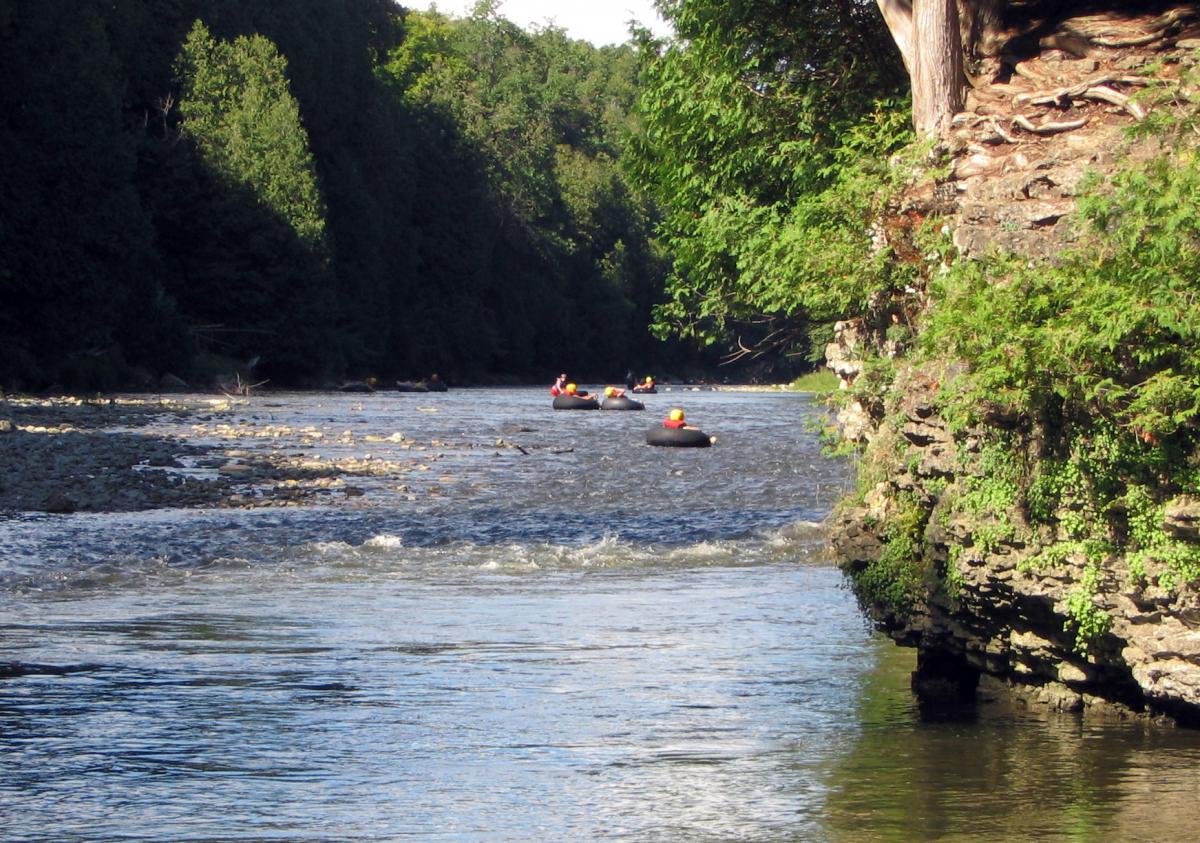rabble is expanding our Parliamentary Bureau and we need your help! Support us on Patreon today!
Nestlé has made a conditional offer to purchase the Middlebrook Well in Elora, Ontario, formally owned by the Middlebrook Water Company. Nestlé wants to test the water first — for up to 60 days over a two-year period — for quantity and quality and has applied for a Permit to Take Water with the Ontario government.
A notice on Nestlé’s proposal was posted on the Ontario Environmental Registry on October 1, 2015. Comments are due on Sunday, November 15 and can be made here. For points to include, click here.
The Council of Canadians made its submission yesterday. While the application is for a pumping test and the water cannot be used for bottling, the proposal is part of a larger project that could have impacts on local watersheds and the Great Lakes Basin, community members of Six Nations, Elora residents, and water as a human right, commons and public trust.
The Council of Canadians submission warns that, “Southern Ontario has experienced record levels of drought and low water levels in the last decade and a half. There have been six major droughts in southern Ontario since 1998 and the first six months of 2012 had been the driest since 1958.”
It also raises that,
“The well sits on the traditional territory of Haudenosaunee, also known as Six Nations. Over 90 per cent of people in Six Nations of the Grand River, roughly over 11,000 people, do not have clean, running water. Yet the province is considering issuing this permit that would enable Nestlé to bottle water from the Grand River watershed and transport water out of the region in the near future. While drinking water in Indigenous communities falls under federal jurisdiction, it would be appalling for the Ontario government to allow Nestlé to bottled water upstream from an Indigenous community where people are living without clean, drinking water. The Ontario government is obligated to obtain free, prior and informed consent of Indigenous communities on any decision affecting water sources according to the UN Declaration of the Rights of Indigenous Peoples. In August, the Haudenosaunee Development Institute sent a letter to Ministry of Environment and Climate Change calling for a meaningful engagement process.”
Elora residents have been raising concerns about the impact Nestlé’s water takings would have on people in the area. The submission adds,
“The Council of Canadians Centre Wellington chapter and Save Our Water have raised concerns that planned assessments of municipal water needs have not been carried out, and little high quality data exists for the deep aquifer. Nestlé’s plans could affect the whole Grand River Watershed and consequently the Great Lakes Basin. We support the community’s call in asking the province for a three-year moratorium on consumptive water permits for the purpose of bottling in the Grand River Watershed.”
Nestlé is already drawing water from wells in Hillsburgh and Aberfoyle, two communities surrounded by three of the five Great Lakes in southern Ontario.
The province must uphold water as a human right, commons and public trust. The province should be phasing out bottled water withdrawals by denying new permits and permit renewals in order to protect clean drinking water for current and future generations.
Add your voice and tell the Ontario government why you think protecting water for communities is important. Be sure to take action and make your submission this weekend by clicking here.
For more information:
Council of Canadians set to battle Nestle’s expansion plans in southern Ontario
Centre Wellington chapter hosts Maude Barlow talk opposing Nestle in Elora
Photo of Grand River at the Elora Gorge by the Grand River Conservation Authority
rabble is expanding our Parliamentary Bureau and we need your help! Support us on Patreon today!



